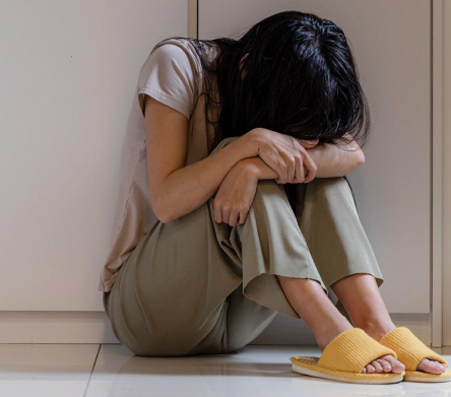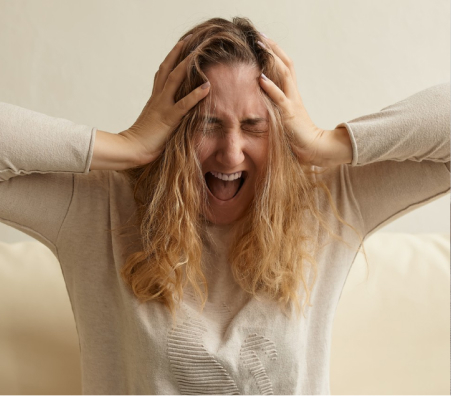With the US population aging, as the United States Census Bureau estimates, the topic of aging and mental health receives more attention. Aging is associated with both physical and psychological changes that pose specific challenges for the elderly and their loved ones. Talking about age and mental health requires understanding not only the changes that come with physiological aging but also the life events that will undoubtedly happen and impact our mental health, even if only in the short term.
To enjoy life, no matter your age, it´s important to think ahead and prepare yourself for the changes that come with aging. Implementing certain strategies and interventions is sure to help achieve that. Learning how to maintain memory and mental health in old age is a good start. Finally, looking for professional help when it is needed can help you improve your quality of life.
Skip to:
Understanding aging and mental health
The relationship between age and mental health is central to developmental psychology, which focuses on developmental differences between age groups and their implications for a person’s well-being. Aging is a natural process that brings about many changes. Some impact bodily health, others social life, and ultimately mental health.

Around 20% of people over the age of 55 and 15% of people over the age of 60 suffer from some mental health disorder. Statistics are also showing that older adults have the highest suicide rate, specifically people over the age of 85.
Despite these striking numbers, the topic of mental health and aging is often overlooked. Frequently, it is assumed that some mental states, like sadness and grief, are normal at a certain age. If they last for a while, however, it is likely depression, which, if not addressed accordingly, can lead to a variety of additional problems, lower life satisfaction, and a decrease in quality of life.
The good news is that the mental health of the elderly can be treated, improved, or supported. The whole society has its role in that, and We Level Up Washington is ready to play its part.

Depression: a major concern in the elderly
According to the World Health Organization, the most common mental health conditions for older adults are depression and anxiety.
Some of the common risk factors for depression in the elderly are:
- Widowhood
- Physical illness
- Low education
- Social isolation
- Loneliness
- Being a caregiver
- Suffering elderly abuse
Although treatable, depression in the older population is often under-recognized, resulting in a lack of treatment. Depression is frequently perceived as a normal part of aging. As there is still a stigma surrounding it, many elderly people will make an active effort to hide how they feel and will not look for professional help.
Get Help. Get Better. Get Your Life Back.
Searching for Accredited Dual Diagnosis Mental Health Centers Near You?
Even if therapy failed previously, or are in the middle of a difficult crisis, we stand ready to support you. Our trusted behavioral health specialists will not give up on you. When you feel ready or just want someone to speak to about counseling alternatives to change your life call us. Even if we cannot assist you, we will lead you to wherever you can get support. There is no obligation. Call our hotline today.
FREE 24/7 Dual Diagnosis Mental Health Services HotlineIf not treated, depression can have a detrimental effect. It not only leads to more mental health issues (e.g., dementia) but also impacts your immune system and overall physical health, resulting in more frequent doctor´s visits and longer hospitalizations. It can also negatively impact a person´s ability to carry out basic daily tasks and reduce their independence and quality of life.
All this implies that early recognition and treatment of depression in the elderly in Washington is essential for their quality of life and the prevention of more damaging issues. Looking for depression treatment in Washington rather than relying on general advice for mental health would ensure a quicker and more sustainable recovery.
Knowing that depression often comes with other mental problems like anxiety or memory issues, to make sure we offer you the most accurate care, we are implementing dual diagnosis treatment in Spokane WA. This way, we can provide you with personalized assistance.
The role of social and emotional support in mental health and aging
Research shows that having social support in life is a major contributor to resilience, a better reaction to aversive events, and lower distress levels. Social support at an older age is indispensable, and it may come in different forms:
- Emotional support – sharing problems, venting emotions
- Informational support – getting advice or guidance
- Instrumental support – getting practical help, like rides or housekeeping
Social support acts as a protective factor, preventing a negative link between aging and mental health.
Keep in mind that social support may come from a variety of places. You might rely on your family members or friends if they are around and can help. Today, many organizations and associations are also trying to support the elderly with small favors or organized activities. Finally, there are professionals you can reach out to if you feel like additional help is needed to address your mental health. We Level Up Washington can provide you with resources and services for enhanced support.

Achieving life satisfaction amidst aging
Studies on healthy aging and mental health addressed life satisfaction in the elderly and the factors that can contribute to it. Health status, cognitive status, economic level, social support, and intergenerational support were identified as some of the main factors in the life satisfaction of older adults. As mental health is an integral part of overall health and well-being, addressing it, especially resolving any issues, is crucial for achieving life satisfaction.
Research also shows that older adults do not report high life satisfaction levels. To address this and ensure healthy aging and mental health promotion, we suggest a few strategies:
- Work on your mental issues. If you are facing anxiety, depression, addiction, or any other mental health problem, try addressing it with a professional. There´s no shame in looking for help when it´s needed, especially when you know how much of a positive impact it will have on your life.
- Improve your cognitive abilities. Learning how to maintain memory and mental health in old age is of great importance for your life satisfaction. Keeping your mind sharp will give you higher self-efficacy and confidence.
- Find your sources of support. Whether peer support or family support, you ought to have someone you can count on. Support can make your life easier and prevent loneliness, which can negatively impact your health.
End the Emotional Pain. Get Your Life Back.
Feeling Depressed, Anxious or Struggling with Mental Health Illness? Get Safe Comfortable Mental Health Dual Diagnosis High-Quality Therapy From Counselors That Care. Begin Your Recovery Now.
Hotline: (509) 348-4077

How to maintain memory and mental health in old age
Maintaining a positive relationship between aging and mental health with prevention strategies is advised. Here are a few things you can do to retain or improve your mental health at an older age:
- Implement lifestyle changes
- Engage in community activities
- Seek professional help
Implement lifestyle changes
Sometimes, small changes can go a long way. A balanced diet or light exercise can lead to better physical health and higher self-efficacy.
Your diet should be rich in fruits, vegetables, whole grains, lean proteins, and healthy fats. Certain nutrients, such as omega-3 fatty acids, antioxidants, and vitamins B and E, have been linked to cognitive health.
As for exercise, aim for a combination of cardiovascular workouts, strength training, balance exercises, and flexibility exercises to promote brain health and overall well-being.
Also, adequate sleep is essential for memory consolidation and cognitive function. Aim for 7-9 hours of quality sleep each night and establish a consistent sleep schedule.
Manage stress through relaxation techniques such as deep breathing, meditation, yoga, or tai chi. Chronic stress can negatively impact memory and cognitive function.
Finally, engage in activities that challenge your brain, such as puzzles, crosswords, learning new skills, reading, or playing musical instruments. They will help stimulate you mentally.
Comfortable Facilities & Amenities
High-Quality Mental Health Services & Behaviroal Health Substance Abuse Treatment
Rehab Centers TourRenowned Mental Health Centers. Serene Private Facilities. Inpatient Rehab Programs Vary.
Mental Health Helpline: (509) 348-4077Proven recovery success experience, backed by a Team w/ History of:
15+
Years of Unified Experience
100s
5-Star Reviews Across Our Centers
10K
Recovery Success Stories Across Our Network
- Low Patient to Therapist Ratio
- Comprehensive Dual-Diagnosis Treatment
- Complimentary Family & Alumni Programs
- Coaching, Recovery & Development Events
- Comfortable Onsite Medical Detox Center
Engage in community activities
Having more social relationships and participating in local community activities can significantly improve your well-being and prevent the negative link between aging and mental health. Research shows that elderly people who have more social relationships and social participation have better cognitive, social, and physical health. Social activities are especially important for those who do not have a partner or otherwise feel lonely.
Seek professional help when needed
Mental issues can be overwhelming, and a person can feel alone in their problem. Additionally, many don’t want to pose a hardship for their family and friends or are simply scared of sharing their troubles.
This is when professional help becomes indispensable. You receive comprehensive care that includes science-based inpatient mental health treatment, privacy, and confidentiality. Professionals can also offer actionable advice on how to maintain memory and mental health in old age.

What you should remember about age and mental health
Aging is a natural process but one that poses many challenges. People need to adapt to many physical, social, and financial changes, which are mentally demanding. It comes as no surprise, then, that certain mental health issues and dissatisfactions can emerge.
It´s important not to overlook changes in mood or behavior, as they can imply bigger issues. Luckily, mental health issues among the elderly, including depression, anxiety, or cognitive problems, are fixable. Early diagnosis often means a better outcome and a better quality of life for a longer time.
You are not alone in this. Whether you are struggling with mental health or you recognize signs of a struggle in an elderly person you care for, contact We Level Up Washington. We are here to assist you in improving your overall well-being and offer reliable resources and support.
World-class, Accredited, 5-Star Reviewed, Effective Mental Health Dual Diagnosis Programs. Complete Integrated Inpatient Rehab with Free Post Discharge Therapy Planning.
Hotline: (509) 348-4077End the Emotional Pain Rollercoaster. Gain Stability & Happiness Through Recovery Treatment. Start Mental Health Counseling Today. Get Free No-obligation Guidance by Behaviroal Health Specialists Who Understand Mental Health Recovery.
Experience Transformative Recovery at the We Level Up Treatment Center.
See our authentic success stories. Get inspired.
Get the help you deserve.



Start a New Life
Begin with a free call to a behavioral health treatment advisor. Learn more about our dual-diagnosis programs. The We Level Up treatment center network delivers recovery programs that vary by each treatment facility. Call to learn more.
- Personalized Care
- Caring Accountable Staff
- World-class Amenities
- Licensed & Accredited
- Renowned w/ 5-Star Reviews
We’ll Call You
Sources
Borg, C., Hallberg, I. R., & Blomqvist, K. (2006). Life satisfaction among older people (65+) with reduced self‐care capacity: the relationship to social, health and financial aspects. Journal of clinical nursing, 15(5), 607-618.
Cho, D., & Cheon, W. (2023). Older adults’ advance aging and life satisfaction levels: effects of lifestyles and health capabilities. Behavioral Sciences, 13(4), 293.
Daban, F., Garcia-Subirats, I., Porthé, V., López, M., De-Eyto, B., Pasarín, M. I., … & Díez, E. (2021). Improving mental health and wellbeing in elderly people isolated at home due to architectural barriers: a community health intervention. Atencion primaria, 53(5), 102020.
Papi, S., & Cheraghi, M. (2021). Multiple factors associated with life satisfaction in older adults. Menopause Review/Przegląd Menopauzalny, 20(2), 65-71.
Tian, H., & Chen, J. (2022). Study on life satisfaction of the elderly based on healthy aging. Journal of Healthcare Engineering, 2022.
Bureau, US Census. “America Is Getting Older.” Census.gov, 22 June 2023, www.census.gov/newsroom/press-releases/2023/population-estimates-characteristics.html.





